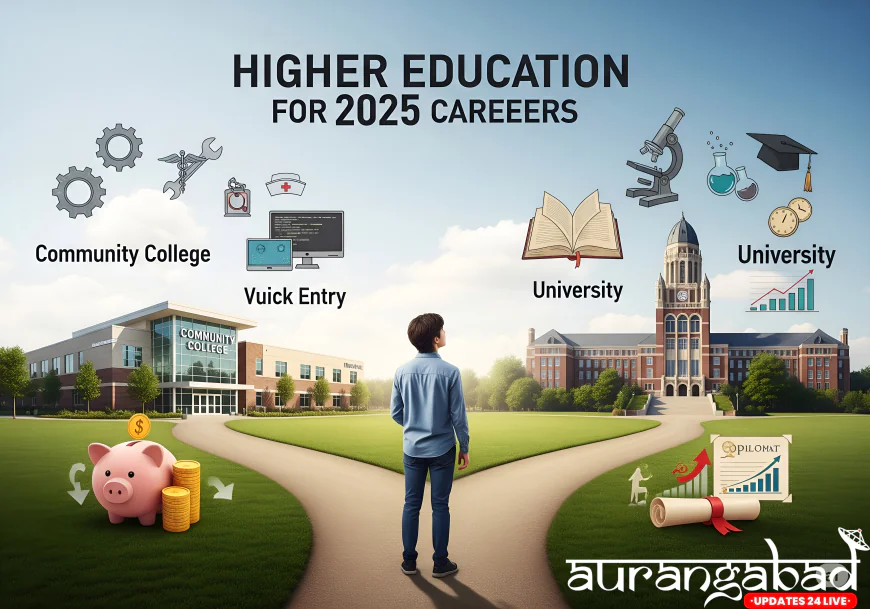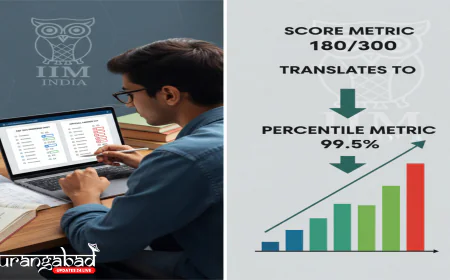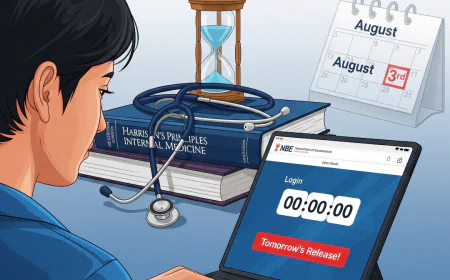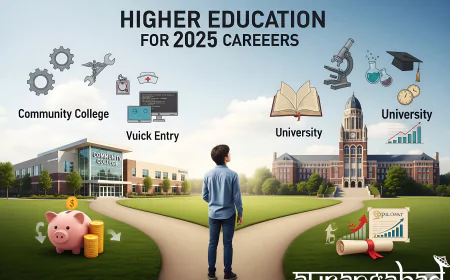Community College vs. University: Navigating Your Career Path in 2025
In 2025, the choice between a community college and a four-year university is more strategic than ever. With rising tuition costs and evolving employer expectations, students are seeking paths that offer better career outcomes, flexibility, and return on investment. This article explores the distinct advantages of both institutions and helps students determine which educational journey aligns best with their financial realities, career aspirations, and learning styles in today's dynamic job market.

In 2025, the decision of where to pursue higher education has become more intricate than ever before. The traditional, almost automatic, assumption that a four-year university degree is the sole gateway to professional success is being increasingly challenged. With escalating tuition fees, the looming specter of student loan debt, and a dynamic job market that increasingly prioritizes practical skills over institutional prestige, prospective students are meticulously evaluating whether a community college or a university better serves their career ambitions and financial realities. The choice today is less about perceived status and more about strategic purpose.
Understanding the Distinct Educational Pathways
Both community colleges and universities offer unique advantages, catering to diverse student needs and career aspirations. Recognizing these differences is key to making an informed decision:
Community Colleges: Affordability, Flexibility, and Direct Entry
Community colleges, often referred to as junior or technical colleges, are publicly funded institutions that primarily offer two-year associate degrees and various certificate programs. They have historically served as accessible entry points to higher education, and their relevance continues to grow in 2025.
-
Cost-Effectiveness: This is arguably the most significant advantage. Community college tuition fees are substantially lower than those at four-year universities. By completing the initial two years of general education requirements at a community college, students can save tens of thousands of dollars on their overall degree cost, especially if they continue to live at home.
-
Flexible Scheduling: Community colleges are designed to accommodate a diverse student body, including working adults, parents, and part-time learners. They often offer a wide array of flexible class schedules, including evening, weekend, and extensive online learning options, making it easier for students to balance their academic pursuits with other life commitments.
-
Career-Focused Training: Many community college programs are specifically tailored to meet immediate industry demands, providing vocational training and specialized certifications in high-demand fields like healthcare, information technology, skilled trades, and culinary arts. This allows graduates to enter the workforce quickly with practical, job-ready skills.
-
Smaller Class Sizes and Personalized Attention: Compared to large universities, community colleges typically feature smaller class sizes. This fosters a more intimate learning environment where students can receive personalized attention from instructors, ask questions freely, and build stronger relationships with their professors.
-
Easier Admission Process: Community colleges generally have open admission policies, making higher education more accessible to a broader range of students, including those who may not have achieved a high GPA in high school or are returning to education after a long break.
-
Transferability: A crucial aspect for many, community colleges offer transfer agreements (articulation agreements) with four-year universities. These agreements guarantee that credits earned at the community college will seamlessly transfer, allowing students to complete their associate degree and then transfer to a university to finish their bachelor's. This "2+2" model is a popular pathway to a four-year degree at a reduced cost.
Universities: Comprehensive Experience and Advanced Opportunities
Universities typically offer four-year bachelor's degree programs, along with master's and doctoral degrees. They are often larger institutions with a broader scope of academic and extracurricular offerings.
-
Comprehensive Academic Programs: Universities provide a deeper theoretical understanding of various fields, often with more specialized majors and a wider range of elective courses. This allows for a broader intellectual exploration and development of critical thinking and research skills.
-
Research Opportunities: Many universities, especially larger research institutions, offer extensive research opportunities for undergraduate students, allowing them to engage in cutting-edge academic work alongside faculty.
-
Campus Life and Networking: The traditional four-year university experience often includes vibrant on-campus housing, a plethora of extracurricular activities, sports, clubs, and fraternities/sororities. This fosters a rich social environment, providing extensive networking opportunities with peers, alumni, and faculty from diverse backgrounds.
-
Alumni Networks: Universities often boast large and influential alumni networks that can provide valuable connections, mentorship, and job opportunities post-graduation.
-
Higher Earning Potential (Long-Term): While there are exceptions, generally, bachelor's and advanced degrees from universities are associated with higher lifetime earning potential and greater access to leadership roles, especially in corporate sectors or for international career opportunities.
-
Prestige and Recognition: Degrees from established universities can carry a certain prestige that may open doors in highly competitive fields or international job markets.
The 2025 Perspective: Shifting Tides in the Job Market
In 2025, the landscape of employer expectations is notably shifting. While university degrees still hold significant weight, there's a growing emphasis on demonstrable skills and practical experience.
-
Skills Over Pedigree: Fewer employers are solely fixated on where a candidate obtained their degree. Instead, "what you know and how you apply it" is gaining equal importance. This trend benefits community college graduates who often possess immediate, job-ready skills from their specialized programs.
-
Certifications and Alternative Credentials: The rise of professional certifications and other alternative credentials is changing the hiring paradigm. Many HR professionals now value certifications for validating in-demand skills. Some companies, like Google, have even reduced traditional college degree requirements for certain entry-level positions, accepting online certificate programs as equivalents.
-
Hybrid Paths and Articulation Agreements: The "2+2" model (two years at community college, two years at university) is becoming an increasingly strategic and popular choice. It allows students to mitigate initial costs, gain clarity on their academic interests, and then seamlessly transfer credits to a four-year institution to complete their bachelor's degree. Formal articulation agreements between colleges and universities simplify this transition, making it a viable and often smarter financial decision.
-
Focus on Adaptability: In a rapidly evolving job market, employers are increasingly seeking individuals who are skilled in problem-solving, collaboration, and continuous learning. Both community colleges and universities play a role in fostering these qualities, but community colleges often provide quicker pathways to acquire new, in-demand skills as industries evolve.
Making the "Career Sense" Choice
Ultimately, the "better" path is highly individualized and depends on several factors:
-
Financial Situation: If minimizing debt is a priority, starting at a community college is often the more financially prudent option.
-
Career Goals: For careers requiring a bachelor's degree or higher (e.g., engineering, law, medicine, research), a university path is essential, although a community college can serve as an affordable starting point. For vocational careers (e.g., dental hygienist, HVAC technician, paralegal), a community college certificate or associate degree might lead directly to employment.
-
Learning Style: Students who thrive in smaller, more personal classroom settings might find community colleges more conducive to their learning style. Those who prefer large lecture halls and extensive campus resources may lean towards universities.
-
Life Experience Desired: Students seeking the traditional "college experience" with dorm life, extensive extracurriculars, and diverse social networks might find universities more fulfilling.
In 2025, career success is not dictated by a single educational mold. It's about making a well-informed decision that aligns with personal circumstances, professional aspirations, and learning preferences. Both community colleges and universities are valid and valuable routes on the map to a fulfilling career, and increasingly, students are learning to navigate and combine these pathways strategically for optimal outcomes.








































